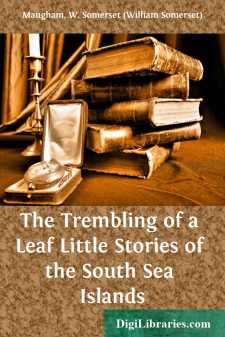Categories
- Antiques & Collectibles 13
- Architecture 36
- Art 48
- Bibles 22
- Biography & Autobiography 813
- Body, Mind & Spirit 142
- Business & Economics 28
- Children's Books 15
- Children's Fiction 12
- Computers 4
- Cooking 94
- Crafts & Hobbies 4
- Drama 346
- Education 46
- Family & Relationships 57
- Fiction 11828
- Games 19
- Gardening 17
- Health & Fitness 34
- History 1377
- House & Home 1
- Humor 147
- Juvenile Fiction 1873
- Juvenile Nonfiction 202
- Language Arts & Disciplines 88
- Law 16
- Literary Collections 686
- Literary Criticism 179
- Mathematics 13
- Medical 41
- Music 40
- Nature 179
- Non-Classifiable 1768
- Performing Arts 7
- Periodicals 1453
- Philosophy 64
- Photography 2
- Poetry 896
- Political Science 203
- Psychology 42
- Reference 154
- Religion 513
- Science 126
- Self-Help 84
- Social Science 81
- Sports & Recreation 34
- Study Aids 3
- Technology & Engineering 59
- Transportation 23
- Travel 463
- True Crime 29
The Magician
Description:
Excerpt
I
Arthur Burdon and Dr Porhoët walked in silence. They had lunched at a restaurant in the Boulevard Saint Michel, and were sauntering now in the gardens of the Luxembourg. Dr Porhoët walked with stooping shoulders, his hands behind him. He beheld the scene with the eyes of the many painters who have sought by means of the most charming garden in Paris to express their sense of beauty. The grass was scattered with the fallen leaves, but their wan decay little served to give a touch of nature to the artifice of all besides. The trees were neatly surrounded by bushes, and the bushes by trim beds of flowers. But the trees grew without abandonment, as though conscious of the decorative scheme they helped to form. It was autumn, and some were leafless already. Many of the flowers were withered. The formal garden reminded one of a light woman, no longer young, who sought, with faded finery, with powder and paint, to make a brave show of despair. It had those false, difficult smiles of uneasy gaiety, and the pitiful graces which attempt a fascination that the hurrying years have rendered vain.
Dr Porhoët drew more closely round his fragile body the heavy cloak which even in summer he could not persuade himself to discard. The best part of his life had been spent in Egypt, in the practice of medicine, and the frigid summers of Europe scarcely warmed his blood. His memory flashed for an instant upon those multi-coloured streets of Alexandria; and then, like a homing bird, it flew to the green woods and the storm-beaten coasts of his native Brittany. His brown eyes were veiled with sudden melancholy.
'Let us wait here for a moment,' he said.
They took two straw-bottomed chairs and sat near the octagonal water which completes with its fountain of Cupids the enchanting artificiality of the Luxembourg. The sun shone more kindly now, and the trees which framed the scene were golden and lovely. A balustrade of stone gracefully enclosed the space, and the flowers, freshly bedded, were very gay. In one corner they could see the squat, quaint towers of Saint Sulpice, and on the other side the uneven roofs of the Boulevard Saint Michel.
The palace was grey and solid. Nurses, some in the white caps of their native province, others with the satin streamers of the nounou, marched sedately two by two, wheeling perambulators and talking. Brightly dressed children trundled hoops or whipped a stubborn top. As he watched them, Dr Porhoët's lips broke into a smile, and it was so tender that his thin face, sallow from long exposure to subtropical suns, was transfigured. He no longer struck you merely as an insignificant little man with hollow cheeks and a thin grey beard; for the weariness of expression which was habitual to him vanished before the charming sympathy of his smile. His sunken eyes glittered with a kindly but ironic good-humour. Now passed a guard in the romantic cloak of a brigand in comic opera and a peaked cap like that of an alguacil. A group of telegraph boys in blue stood round a painter, who was making a sketch—notwithstanding half-frozen fingers....











